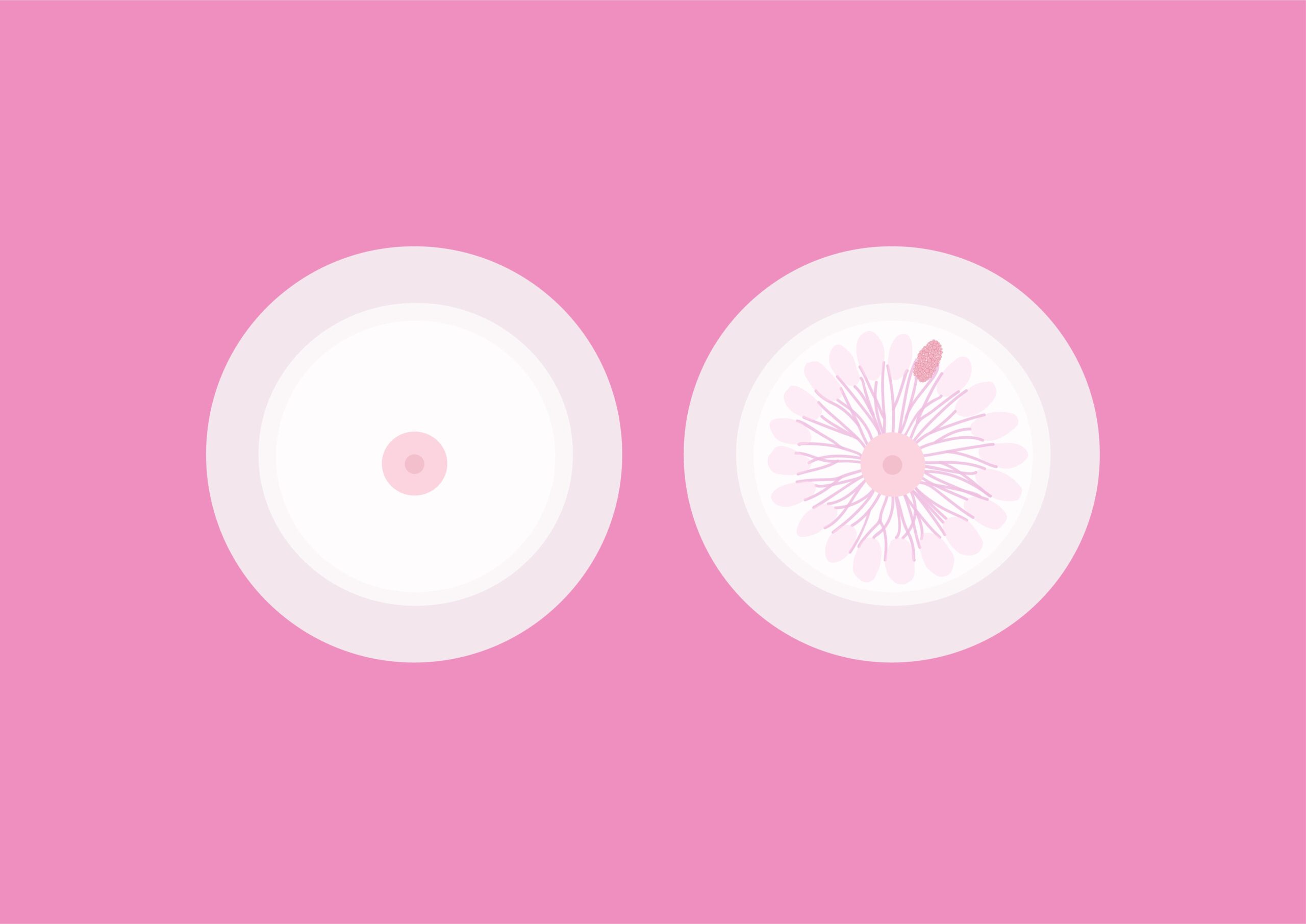
Is Breast Cancer Painful? What You Need to Know About This Less Common Symptom
February 21, 2025
There are many misconceptions around breast cancer, such as assuming that men cannot contract the disease or that wearing a bra can cause it. But one of the most widespread and potentially harmful myths is that breast cancer can't hurt.
This concept resurfaced late last week, after the former star Bachelorette party Katie Thurston has revealed that she has breast cancer. The 34-year-old shared in a Instagram story that she had noticed a lump in her breast, but waited to have it checked out by a doctor because it was painful. This pain "probably led to more doubt and a delay in screening, since most [websites] will say 'most breast cancers don't hurt,'" Thurston wrote. "I really thought it was PMS or exercise," she added.
Unfortunately, doctors who treat breast cancer patients say this is a common misconception, which can lead to delayed diagnosis and treatment. Here's why and when breast cancer can hurt, and how to know when you should see a doctor for breast pain.
There are many reasons why breast cancer can be painful.
To be honest, yes, most women with undiagnosed breast cancer do not have pain. "It is not common for breast pain to be associated with breast cancer. However, it can still happen," Nicole Williams, MD, tells SELF, breast medical oncologist at The Ohio State University Comprehensive Cancer Center – James Cancer Hospital.
But there are a handful of reasons why you might experience pain with breast cancer, and a lot of it comes down to the size of the tumor and its location, Richard J. Bleicher, MD, tells SELF, chief of the division of breast surgery at Fox Chase Cancer Center. "If you have a very large breast cancer, it can encroach on nerve structures, muscle structures, bone structures, and any component of the breast outside of the breast tissue, which can cause pain," he says.
But even small tumors can cause pain. “Breast cancers tend to be very hard,” says Dr. Bleicher. “Even if a lesion is small, it will cause discomfort if it touches a nerve or muscle.”
Some types of breast cancer are also more likely to be uncomfortable than others, explains Dr. Jason Mouabbi to SELF, assistant professor in the Department of Breast Medical Oncology at the University of Texas MD Anderson Cancer Center. Inflammatory breast cancer, which accounts for up to 5% of all breast cancers, typically causes symptoms such as redness, swelling, and severe breast pain, he points out. “But all breast cancers have the potential to cause pain,” says Dr. Mouabbi.
The myth that breast pain cannot be a sign of cancer is persistent.
The assumption that breast cancer won't hurt is "relatively accurate," says Dr. Bleicher. Most of the time, breast pain won't be due to breast cancer, Katherine Cline, CNP, tells SELF, breast cancer nurse practitioner at The Ohio State University Comprehensive Cancer Center – James Cancer Hospital. There are many other likely reasons why your breasts might be painful. “Breast pain is primarily caused by hormonal changes, certain medications, benign cysts/lumps, or infections,” Cline explains. Given that breast cancer is also painless most of the time, it’s easy to understand how people might completely dismiss it as a potential explanation for this symptom.
"client-happy" Additionally, given the seriousness of breast cancer, many people may also prefer to rely on the idea that breast cancer can't hurt if they develop pain, to try to reassure themselves, says Dr. Mouabbi. And since there are a handful of other, more likely explanations for breast pain (hello, hormones), it can be easier to ignore it and assume it's a non-medical issue than to go through the whole process of seeing a doctor and getting checked out. "BodyWrapper" But despite all of this, many healthcare providers are working to disseminate the right information. "It's something I discuss often with my patients," says Dr. Mouabbi.
There are a few clues that you may be experiencing breast cancer-related breast pain rather than "normal" breast pain.
It's important to clarify this from the outset: the only way to know for sure what's going on inside your breast is to have a
>a proper screening exam »https://www.self.com/story/super-bowl-ad-breast-cancer-2025″ including an evaluation by a doctor and a test like a mammogram or breast ultrasound. “The average person won’t be able to tell the difference,” says Dr. Bleicher. “Sometimes it’s even a challenge for healthcare providers, just based on the characteristics.” Still, there are a few signs that you might have breast pain related to cancer or something else. »_blank »“If the pain persists and you can really pinpoint it to a specific spot, that’s important to know,” says Dr. Mouabbi. The same goes for pain that occurs at the same time astarget=
>nipple discharge »https://www.self.com/story/early-symptoms-of-breast-cancer » , including bloody discharge. “This almost always leads to a mammogram and ultrasound,” says Dr. Mouabbi. »_blank »But pain that comes and goes can also be related to breast cancer. “If the pain waxes and wanes, it will require a little judgment on the part of the person,” says Dr. Bleicher. “If they don’t think it’s due to any cause, always err on the side of caution and talk to a doctor.” Ultimately, it’s worth seeing a doctor for unexplained breast pain.
If you suddenly experience breast pain, Dr. Mouabbi says you shouldn't panic and assume you have breast cancer. "Wait a few days," Dr. Mouabbi says. "Even the most aggressive types of breast cancer won't make a difference if you wait that long."
But if the pain persists beyond that, you have nipple discharge, find a lump, or simply have no idea what's going on, it's time to make an appointment with a healthcare professional. "They'll do the appropriate workup with a medical history, physical exam, and appropriate imaging to evaluate it," says Dr. Williams.
Again, it's more likely than not that your breast pain is due to something else, but you don't want to rule out cancer completely. Getting it checked will help you be sure, give you peace of mind, and ultimately help detect anything concerning as early as possible.
Related:
target=
> »https://www.self.com/newsletter/self-daily » Get more of SELF's excellent service journalism delivered straight to your inbox »_blank ».
rel= »https://www.self.com/story/does-breast-cancer-hurt » target= »button purchase »>Read more »nofollow noopener »
